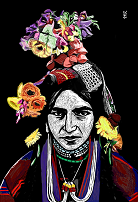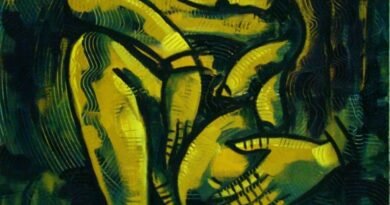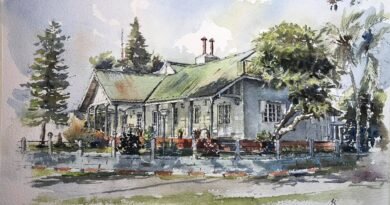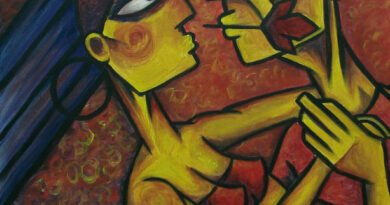The Brokpa Tribe of Ladakh – “Alexander’s Lost Army”
The Brokpa Tribe of Ladakh – “Alexander’s Lost Army”
The Brokpa tribe is a small community of Dard people residing in the four villages of Dah, Hano, Darchik and Garkon of Ladakh, Jammu in North India. Myth has it that the Brokpa tribe traces its genetic history to the members of the Alexander’s army which stayed back. These 1800 strong Brokpa community has rather successfully been able to keep its gene pool intact, using strong social sanctions and rules. For thousands of years, they have lived in isolation in their inaccessible villages. They have distinct features – tall and statuesque, with green eyes, high cheekbone, fair with flawless skin and some with blonde hair. They consider themselves to be the pure bloodline of the Aryans. There are even crazy tales of Neo-Nazi women coming all the way down here from Germany to be impregnated by Brokpa men, so as to secure the pure Aryan seed.
Brokpas are practicing Buddhists, but retain concurrent belief in God Lha, to whom they sacrifice goats during their festivals. To maintain racial purity, endogamy is sanctioned, however with certain prescribed rules. Marriage is the most important institution in this society, for ages this institution has kept the tribal identity intact. All the hymns of the Brokpas are in Brokskat, the language spoken by the Brokpas and only understood in these four villages. The songs and rituals have come down through oral tradition since the tribe does not have a script. The songs are the repository of the tribe’s history. Brokpa households are similar to local Ladakhi homes where the kitchen is the place of central activity. Dried apricots and other dry fruits and gur-gur chai are stored in abundance to keep themselves warm. The Brokpas have a strange affinity with cats, with at least one cat in every Brokpa household.
A Brokpa tribal is identified by a colourful headgear called Tepi that has various colorful props attached, embellished with colorful berry flowers. The Tepi is also an instrument that wards evil eye. The women wear heavy metal, gold and silver jewellery along with full-length sheep skin capes and sheep wool pheran. Old metal coins are part of the accessory. The men mostly wear maroon gowns with cummerbunds. There is a belief that metal worn on the body prevents sickness.
Brokpas have almost a fanatical attachment to purity. Mountains, trees, water and flowers are considered very pure. Every Brokpa household grows flowers. The flowers are considered auspicious and are worn on headgears. The Brokpas have clean houses, the hearth is considered the purest place in the house. Utensils are polished and displayed, as anything of metal is considered pure. The rooms have pillars that are considered abode of the God Lha. They maintain small kitchen gardens where they grow vegetables herbs, fruits, wheat, flour and barley. Other important foods include potatoes, radishes, turnips, and Gur-Gur Cha, a brewed tea made of black tea, butter and salt. The Brokpa villages grow grapes courtesy of the fabulous weather during the summer and are proficient in the art of wine making. Every household makes a limited quantity of wine from home-grown grapes and the quality is said to be exceptional. They eat goat’s meat only during festivals, otherwise all kind of meat, egg, milk and milk products are out of their menu because of religious taboos. The fear of getting polluted have driven the Brokpas to be Vegans. This is a unique practice in this climate and altitude. The Brokpas eat what grows out of the earth.
(Sources: Sudipto Sengupta, Wikipedia, Karishma Goenka and Shubhammansingka)

Art by Michael Mili

Michael Mili started his cartooning and illustration career at the young age of 15 years. He worked as the daily front-page pocket and political cartoonist for “The National Herald” (founded by Jawaharlal Nehru) and “The Sentinel”. Once dubbed as “The Youngest Professional Cartoonist of the Country”, Michael’s cartoons have appeared in more than 16 publications in India.




